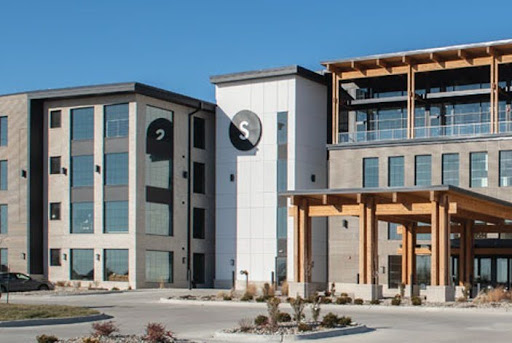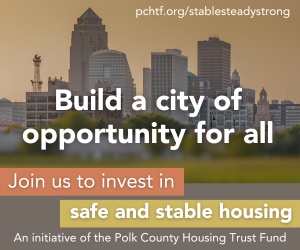7 takeaways from Power Breakfast on property taxes
Panelists discuss local government, economic development effects and possible solutions

Business Record Staff Feb 17, 2025 | 2:11 pm
9 min read time
2,035 wordsAll Latest News, Economic Development, Government Policy and Law, VideoIn 2023, Iowa lawmakers passed legislation that changed Iowa’s property tax system and budgeting process for cities and counties. The legislation, which received bipartisan support, was signed into law in May 2023.
A key feature of the legislation, which was tweaked in the 2024 session, limits how much money in the form of property taxes cities and counties can take in annually. Any excess money must be used to lower property taxes.
Supporters of the law believe it provides tax relief to Iowans by limiting how much revenue local governments can generate from property taxes and restricting revenue growth based on tax base. Lawmakers in 2023 estimated the law would save taxpayers $100 million.
However, changes made by the law are proving challenging for municipalities. Property taxes are the main source of funding for essential services like police and fire. Property taxes also are used to pay for libraries, parks and recreational trails, and infrastructure such as streets and sewers.
Three communities — Altoona, Indianola and Norwalk — have voted to leave regional partnerships aimed at promoting the arts and tourism. The city of Des Moines is grappling with deep budget cuts including possibly closing Birdland Pool.
In the first Power Breakfast of 2025, the Business Record brought together five panelists who discussed changes to Iowa’s property tax law, the effect on municipalities and future development and possible solutions to the issue.
Watch a replay of the event
View photos from the event
Panelists included:
- Adam Kaduce, president, R&R Real Estate Advisors
- Sara Kurovski, mayor, city of Pleasant Hill
- Dustin Miller, founding partner CWL Group, and executive director, Iowa Chamber Alliance
- Nate Ristow, president and CEO, Iowa Taxpayers Association
- Scott Sanders, city manager, city of Des Moines
The following are Business Record reporters’ takeaways from the Feb. 13 event.
Challenging to attract businesses to Iowa
Kaduce frequently meets with representatives of businesses considering locating to Iowa. Often, the business is considering other states in which to locate as well. It doesn’t take long for conversations to turn to how much money businesses will have to spend on operating costs such as property taxes, he said. “They say, ‘Wow, your property taxes seem really high’ … and then it’s a challenging conversation based on the complexity of” Iowa’s system. “We get ruled out of multistate searches because of our property taxes and because they’re not taking the time to look into the complexity. … They’re not looking at how that might balance out with other taxes that they would pay, too. As we look at this issue, we pay a lot of attention to that, because it affects the business growth and the employment growth for Des Moines, and ultimately, we put a roof over a lot of businesses, so that drives a lot for us.”
Owners of commercial and industrial parcels in Iowa pay 90% of the assessed valuations of their properties. “We don’t want to see that burden shift even further onto the backs of commercial property taxpayers,” Kaduce said. “That’s just another expense that you’re going to pay as a business. That burden has already shifted a lot in the direction of commercial and industrial taxpayers. We really want to make sure that there’s an opportunity for a holistic approach and not just further shifting the burden onto commercial and industrial developers.”
Limited budget growth
Changes in Iowa’s property tax law limits how much cities’ general fund budgets can grow each year, Kurovski said. For the fiscal year that begins July 1, Pleasant Hill’s general fund will grow by only $200,000, she said.
“I have an understaffed fire department. I have three full-time public works employees responding to all snow, ice, and the tornado [that touched down in the city in 2024]. We handled the tornado cleanup on our own. We spent $225,000 just on cleanup. Where does that come from? Under this new property tax restriction, we only have $200,000 more in our general fund.”
Pleasant Hill has added 80 acres of parkland in the past decade but continues to employ just three full-time park employees, she said. The city has the same number of public works employees that it did 20 years ago even though there are more streets, sidewalks, sewers and trails that need to be maintained, she said. “We’re talking about cutting essential basic services.”
Kurovski said a developer new to the city is considering building several market-rate houses in Pleasant Hill. “Even if we can get creative and find a way to fund the infrastructure, I can’t support the additional [emergency medical services] and police needed when you add 1,000 new people.”
The city of Des Moines is cutting $17 million from its general fund budget, which equals about 8% of the city’s annual operating budget, Sanders said. “We are cutting into the bone. … Unfortunately, we are making the hard decisions now of what services we will no longer provide to our residents.”
Ripple effect
Delaying the start of proposed projects has a ripple effect through the local and state economy, Kurovski said. If cities don’t have money in their budgets to pay for new streets and sewers, new homes aren’t going to get built, she said. “If you are delaying economic development … your developers don’t have projects, your architects aren’t designing anything, your engineers aren’t working. … This all trickles down to our local economic engines. … Not having a solution creates even more uncertainty. We cannot wait that long.”
Reducing complexities
Working with members at the Iowa Chamber Alliance who experience different sides of the property tax challenges, Miller said he thinks digging into ways to simplify Iowa’s complex system will help reveal the way ahead “rather than the top-level property taxes having to be brought down.”
“You have people that are paying commercial and industrial rates that are very high saying, ‘Jeez, I’d like this to come down,’ but at the same time you don’t get economic growth without appropriately funded local governments assisting you, so it is a balance and we need to get into the discussions that are complicated,” Miller said.
He referred to a past example of lowering Iowa’s personal corporate income tax, which was previously the second highest in the country, he said. He said the decision to lower the tax was made to “spur growth” and property tax changes should have the same motivation.
“Anything we do needs to be pro-growth, because when we get new rooftops, that means new income taxes, personal and corporate, coming into the state. It’s new [employees],” he said.
Maintaining regional collaborations
One effect of cities’ budget constraints is considering the future of their participation in organizations based on regional involvement, including Bravo Greater Des Moines, Catch Des Moines and Des Moines Area Regional Transit Authority. Altoona and Norwalk have voted to end their partnership with Bravo, and Indianola has indicated it will leave Catch Des Moines.
Kurovski said “no one is enjoying” having conversations considering whether their cities will contribute to these organizations going forward, but providing city services is a requirement.
“We have all worked regionally both as 28E members through the [regional organizations] versus all of the behind the scenes, from mixing and sharing salt in one facility with multiple entities using it to code consortium and working behind the scenes to be more effective,” she said. “[The partnerships] exist everywhere, but this conversation has hit so many of us in a unique way that we have to pick and choose between the paramedic that we staff or not. … If you can’t provide essential city services, how can we do all the other things that make us great and help us fight for economic development? It is not an enjoyable conversation because we want this whole area to thrive.”
Sanders said regional relationships among cities in the Des Moines metro is not found in other areas.
“I’ve done a lot of research on that. I get the opportunity to talk to city managers in the larger cities across this country and we are different, but we are also at a turning point, and I hope you do not drift away from that collaboration,” Sanders said.
He said regional partnerships on utilities have been some of the most successful, partly because they provide the same level of service to each member.
“It gets much more difficult when you start talking about Bravo, who has nearly 100 organizations that come to them for fine arts, things of that nature,” he said. “[Catch Des Moines], who has dozens upon dozens of hotels in the metro area and they have hundreds of events each year, which is great.”
He said the “glue” is each community acknowledging the region’s collective advances.
“Let’s make sure we’re talking about regional benefits that our residents receive regardless of where the location might be for a certain amenity or attraction, or even a DART route, frankly, because again, we all benefit and can raise all ships as long as we continue our work together well. And I have the faith that we’ll be able to do that, but we have to start from that recognition [that] indirect benefits help us all,” he said.
Possible solutions
Panelists offered some ideas for solving the property tax issue. One idea discussed was treating growth in assessed valuations from new developments and new construction differently than general growth in assessments, Ristow said. “New growth requires additional investments in services and infrastructure by the cities.”
About 40% of the properties in the city of Des Moines don’t pay property taxes, Sanders said. Sanders didn’t call for the properties’ tax-exempt status to change. But, he did note that “there’s a breadth of nonprofits in all of our communities for which we all have to” provide services but don’t collect property taxes from.
Other ideas suggested included partnering with neighboring communities to share services and equipment and finding other funding sources to pay for infrastructure projects.
Expectations from the Legislature
Miller said there was added pressure to address property taxes in 2023 when property assessments in March of that year came in around 24% to 25% higher.
“I don’t think the same chess pieces are on the board this year. I will say this to our city and county parkers in the room though: I wouldn’t take something not happening this year as, ‘Well, we shouldn’t work on this,’” he said.
Ristow said the next steps are uncertain because of the different approaches he’s hearing from legislators.
“Some legislators are looking at — we talked about the complexity of the system — big overhauls of the system, trying to simplify it and also get at the property tax burden on individuals and businesses,” Ristow said. “Then, I have a different conversation with someone in the same chamber who says, ‘I think it’s a year for small tweaks and see what happens with what we’ve already done.’”
Miller said his sense is the Senate is looking at more of an overhaul, while the House is thinking of making tweaks to the system.
The Legislature has also not put forth a new proposal, but different from 2023, Ristow said he expects a slower rollout of any new changes.
“[The 2023 bill] really came late in session and there wasn’t really a whole lot of time to react and the bill was rolled out and passed very quickly,” Ristow said. “This year … what I’ve been told is the idea is to put it out there, get feedback for like a month. Then, it’s not a priority to move it quickly — it’s a priority to get the language out there and get it vetted, so I do think there’s a little different approach from the Legislature on that front.”
Sanders said when legislators get closer to consensus on a proposal, bringing in the “experts, bring in the professionals that can talk about what the indirect impacts are going to be.”
“Obviously, when this past law came into effect, we automatically, quickly told them this will have a huge impact on growth,” he said. “That could have been corrected if we had probably 24 hours more notice of what the language actually was in the bill.”











